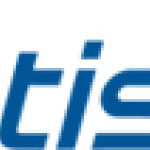- Branche: Telecommunications
- Number of terms: 29235
- Number of blossaries: 0
- Company Profile:
ATIS is the leading technical planning and standards development organization committed to the rapid development of global, market-driven standards for the information, entertainment and communications industry.
A digital code having two information states, e.g., "0" and "1" or "mark" and "yyspace", in which code the signal returns to a rest state during a portion of the bit period. 2. A code form having two information states termed "zero" and "one" and having a third state or an at-rest condition to which the signal returns during each rest period. In this specification, the at-rest condition is the zero state.
Industry:Telecommunications
A digital file format (standard) used for the storage or transmission of digital representations of graphics (i.e., images. ) Note: The cgm format (indicated by the filename extension ". Cgm") is used most by CAD programs.
Industry:Telecommunications
A digital loop carrier (DLC) that uses a central office terminal (COT. )
Industry:Telecommunications
A digital representation of a 0-dBmO 1004-Hz analog sinusoid, such that it will be decoded into an analog signal equal in level to the analog signal obtained by decoding a digital milliwatt using the same decoder.
Industry:Telecommunications
A digital serial-coded bit stream with time slots allotted to each call on a sequential basis. 2. A common path or a set of parallel paths over which signals from more than one channel pass with separation achieved by time division.
Industry:Telecommunications
A digital signal that has been converted to a form suitable for transmission over a specified analog channel. Note: The specification of the analog channel should include frequency range, bandwidth, signal-to-noise ratio, and envelope delay distortion. When quasi-analog form of signaling is used to convey message traffic over dial-up telephone systems, it is often referred to as voice-data. A modem may be used for the conversion process.
Industry:Telecommunications
A digital signal that has been converted to a form suitable for transmission over a specified analog channel. Note: The specification of the analog channel should include frequency range, bandwidth, signal-to-noise ratio, and envelope delay distortion. When quasi-analog form of signaling is used to convey message traffic over dial-up telephone systems, it is often referred to as voice-data. A modem may be used for the conversion process.
Industry:Telecommunications
A digital signaling rate of 1. 544 Mb/s, corresponding to the North American and Japanese T1 designator.
Industry:Telecommunications
A digital signaling rate of 3. 152 Mb/s, corresponding to the North American T1C designator.
Industry:Telecommunications
